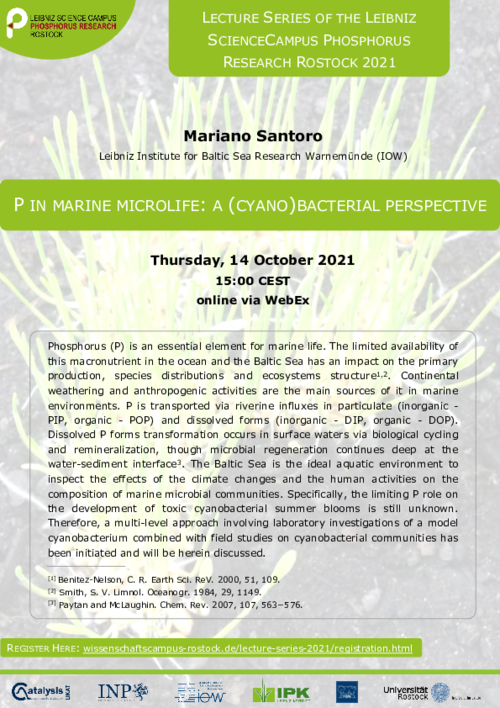Abstract
Phosphorus (P) is an essential element for marine life. The limited availability of this macronutrient in the ocean and the Baltic Sea has an impact on the primary production, species distributions and ecosystems structure1,2. Continental weathering and anthropogenic activities are the main sources of it in marine environments. P is transported via riverine influxes in particulate (inorganic - PIP, organic - POP) and dissolved forms (inorganic - DIP, organic - DOP). Dissolved P forms transformation occurs in surface waters via biological cycling and remineralization, though microbial regeneration continues deep at the water-sediment interface3. The Baltic Sea is the ideal aquatic environment to inspect the effects of the climate changes and the human activities on the composition of marine microbial communities. Specifically, the limiting P role on the development of toxic cyanobacterial summer blooms is still unknown. Therefore, a multi-level approach involving laboratory investigations of a model cyanobacterium combined with field studies on cyanobacterial communities has been initiated and will be herein discussed.
[1] Benitez-Nelson, C. R. Earth Sci. ReV. 2000, 51, 109.
[2] Smith, S. V. Limnol. Oceanogr. 1984, 29, 1149.
[3] Paytan and McLaughin. Chem. Rev. 2007, 107, 563−576.
Registrations are possible on the lecture series website. We look forward to your participation.
The team of Graduate Academy

